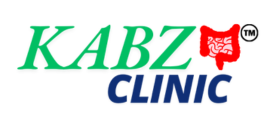Small Intestinal Bacterial Overgrowth SIBO: Understanding Small Intestinal Bacterial Overgrowth
The Complete Guide to SIBO

What is Small Intestinal Bacterial Overgrowth (SIBO)?
Small Intestinal Bacterial Overgrowth (SIBO) is a condition where there is an excessive growth
of bacteria in the small intestine. Normally, the small intestine has a relatively low number of bacteria, but in SIBO, there is an overgrowth of these bacteria
What are the symptoms of Small Intestinal Bacterial Overgrowth (SIBO)?
· Abdominal bloating and distension
· Flatulence
· Abdominal pain and cramping
· Diarrhea or constipation
· Weight loss
· Nausea and vomiting
· Malabsorption of nutrients (leading to deficiencies in vitamins and minerals)
Who can suffer from Small Intestinal Bacterial Overgrowth (SIBO)?
· Individuals with impaired motility of the small intestine (e.g., due to irritable bowel syndrome, diabetes, or structural abnormalities)
· Those with weakened immune systems
· People who have undergone abdominal surgery
· Individuals taking certain medications (e.g., antibiotics, proton pump inhibitors)
What are the types of Small Intestinal Bacterial Overgrowth (SIBO)?
· Hydrogen-dominant SIBO: This is the most common type and is characterized by the overgrowth of bacteria that produce hydrogen gas.
· Methane-dominant SIBO: This type is characterized by the overgrowth of bacteria that produce methane gas.
· Mixed SIBO: This type involves the overgrowth of bacteria that produce both hydrogen and methane gases.
Which diagnostic tests are available for Small Intestinal Bacterial Overgrowth (SIBO)?
· Breath test: This involves measuring the levels of hydrogen and methane gases in your breath after you have ingested a specific sugar.
· Small bowel imaging: This may include X-rays, CT scans, or MRIs to assess the motility of the small intestine and look for any structural abnormalities.
What is the treatment of Small Intestinal Bacterial Overgrowth (SIBO)?
· Antibiotics: These medications can help to reduce the number of bacteria in the small intestine.
· Dietary changes: Certain dietary modifications may be recommended to help manage SIBO symptoms and promote bacterial balance.
· Probiotics: These supplements may help to restore healthy gut bacteria.
· Herbal remedies: Some herbal remedies have been used to treat SIBO, but their effectiveness is still being studied.
Which diet I should take, if any ?
· Elimination diet: This involves temporarily eliminating certain foods from your diet to identify any triggers for your symptoms.
· Low FODMAP diet: This diet restricts the intake of fermentable oligosaccharides, disaccharides, monosaccharides, and polyols, which can worsen SIBO symptoms.
Which speciality of the doctor will treat Small Intestinal Bacterial Overgrowth (SIBO)?
A gastroenterologist is the specialist who typically treats SIBO
Is Small Intestinal Bacterial Overgrowth (SIBO) completely curable?
SIBO can be managed effectively, but it may require ongoing treatment and dietary adjustments. Complete cure is not always possible, especially if underlying conditions contributing to SIBO persist.





